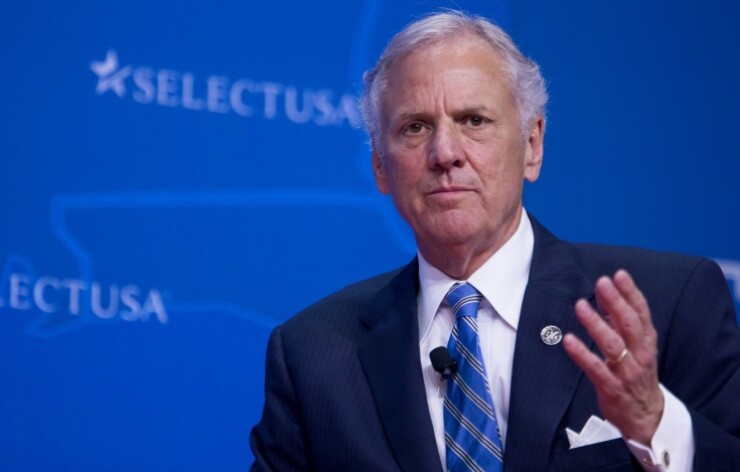South Carolina Gov. Henry McMaster signed a continuing resolution to keep the state government running at current levels until incoming revenues can be better projected for lawmakers to pass a fiscal 2021 spending plan in the fall.
The resolution, signed Monday, also authorizes $155 million to be spent from the state's reserves for efforts to stop the spread of the COVID-19, and to add safety measures for upcoming elections.

"I commend the General Assembly for immediately directing existing state funds from the contingency reserve account to address the COVID-19 virus," McMaster, a Republican, said in a letter to Senate President Harvey Peeler, R-Cherokee, and House Speaker Jay Lucas, R-Darlington.
State tax collections have been difficult to project, in part, because the South Carolina Department of Revenue moved the due date for income tax returns and payments to July 15 from April 15, matching the new IRS income tax deadline. Lawmakers plan to resume work on the budget in September. The fiscal year begins on July 1.
McMaster said the reserve funds will be used to expand testing capabilities and contact tracing efforts in rural areas, and to focus on the state's at-risk and elderly population.
The Legislature left Columbia without deciding how the state will spend money allocated by the CARES Act. Lawmakers want to appropriate the funds rather than allow McMaster to do that.
"The Coronavirus Aid Relief and Economic Security Act urgently passed by the Congress and signed into law by President Trump provided South Carolina with over $1.9 billion," McMaster said. "Its sole purpose is the reimbursement of legitimate COVID-19 expenses incurred by state agencies, local governments, first responders, hospitals, school districts and institutions of higher education."
The funding should be allocated "quickly but carefully" to get those entities back on their feet, McMaster said adding, "Time is of the essence and deadlines are approaching."
McMaster said he has created a task force called "AccelerateSC" to coordinate economic revitalization efforts. Based on the group's recommendations, the governor said he will propose priorities for spending CARES Act funds for the General Assembly to consider in another special session.
"These relief funds belong to the people of South Carolina, not politicians, and we must deliver them to where they are needed," he told Peeler and Lucas. "Consideration for their appropriation must be done expeditiously, but also wisely, transparently and with meticulous accountability."
McMaster said the "suffering and economic damage inflicted by the COVID-19 virus has been dramatic."
The state has experienced 391 deaths as a result of the disease, and 8,942 have tested positive for it, according to the South Carolina Department of Health and Environmental Control.
"These numbers will rise," McMaster told lawmakers. "Businesses, livelihoods and education have suffered. Almost 450,000 people have filed for unemployment in the last sixty days."
South Carolina had $2.25 billion of outstanding bonds and notes as of June 30, 2019. Of that, $458 million was state general obligation bonds. The GOs are rated triple-A by Fitch Ratings, Moody's Investors Service and S&P Global Ratings.
As of Tuesday, the state hadn't made any disclosures concerning the impact of COVID-19 on the budget.





